Displaying items by tag: Vattenfall
Vattenfall and St1 form a new partnership
Vattenfall and St1 have signed a Letter of Intent to develop a fossil-free value chain for the production of synthetic electro fuel and the next step is to jointly conduct a feasibility study. The study aims at addressing the full value chain for the production of electro fuel from offshore wind, starting in 2029 and gradually growing towards the target of one million cubic meters.
Vattenfall and St1 will jointly conduct a feasibility study with the ambition to develop a fossil-free value chain for the production of electro fuel, through offshore wind. In the partnership, Vattenfall aims to develop an offshore wind power-based hydrogen supply infrastructure on the west coast of Sweden and St1 plans to produce one million cubic meters of electro fuels, primarily targeted for sustainable aviation fuel using fossil-free hydrogen. Such volumes equal for example the annual aviation fuel demand of Arlanda airport. First drops starting from 2029 and onwards.
"I’m very glad we are partnering with St1, two companies sharing the ambition to fight climate change. For Vattenfall, the electrification of society and industry is at the core of our business strategy. The development and optimisation of value chains based on offshore wind and fossil-free hydrogen is an interesting way forward. Our strong and growing Swedish offshore wind development portfolio of currently more than 20 TWh offers ample opportunities”, says Anna Borg, President and CEO of Vattenfall.
Two-thirds of Swedish carbon dioxide emissions today come from industry and transport. Together with industries, Vattenfall works actively with direct electrification and indirect electrification, using fossil-free hydrogen gas. Vattenfall sees huge potential for decarbonisation on the Swedish West coast for industries like refinery and petrochemicals.
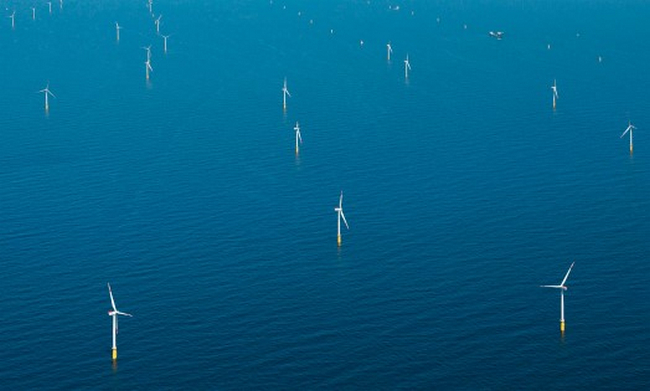
“Energy companies need to show leadership in bravely promoting and developing scalable game-changing solutions. We are very proud of the partnership with Vattenfall, as we share true dedication to deliver together this significant breakthrough in the energy transition. Strategic long-term partnerships in various areas are the key elements in the implementation of St1’s sustainable fuels investment program and it shows the importance of industry collaboration across several value chains to meet the ambitious Nordic climate targets”, says Henrikki Talvitie, CEO of St1 Nordic Oy.
In the spirit of its vision, St1 is already investing in energy transition through scalable renewable energy production. A new biorefinery is under construction on the St1 refinery site in Gothenburg. The biorefinery will have an annual capacity of 200,000 tonnes of renewable fuel production and is expected to commence its operations in 2023. It is designed to optimize the production of renewable diesel and sustainable aviation fuel. St1 already produces advanced ethanol and biogas from waste.
Vattenfall is a leading European energy company, which has electrified industries, supplied energy to people’s homes, and modernised our way of living through innovation and cooperation for over 100 years. We now want to make fossil-free living possible within one generation. That's why we are driving the transition to a sustainable energy system through initiatives in renewable production and climate smart energy solutions for our customers. We employ approximately 19,000 people and our operations are mainly based in Sweden, Germany, the Netherlands, Denmark and the UK. Vattenfall is owned by the Swedish state. For more information: corporate.vattenfall.se
St1 Nordic Oy is an energy group whose vision is to be the leading producer and seller of CO2-aware energy. The Group researches and develops economically viable, environmentally sustainable energy solutions. St1 focuses on fuel marketing activities, oil refining and renewable energy solutions such as waste-based advanced biofuels and industrial wind power. The Group has 1290 St1 and Shell branded retail stations and gas filling points in Finland, Sweden and Norway. Headquartered in Helsinki, St1 employs currently more than 1200 people. www.st1.com
Vattenfall and Air Liquide sign long-term electricity supply agreement for offshore wind
Air Liquide has signed its largest long-term Power Purchase Agreement (PPA) to date in the Netherlands with Vattenfall, for 115 MW or around 500 GWh per year, of renewable electricity from the offshore wind farm Hollandse Kust Zuid. This PPA comes in addition to a 100 GWh-PPA with Air Liquide announced in March 2021, expanding the long-term partnership.
The 15-year PPA starting in 2025 enables Air Liquide to supply its existing industrial and medical gas production assets in the Netherlands and more generally in the Benelux region with renewable energy.
Erik Suichies, Executive at Vattenfall’s Business Area Markets: “This Power Purchase Agreement is an important step for the Hollandse Kust Zuid project. Long-term commitments such as PPAs will make a significant contribution to the decarbonization goals of our industrial partners and help to bring closer Vattenfall’s ambition to create a fossil-free living within one generation at the same time.”
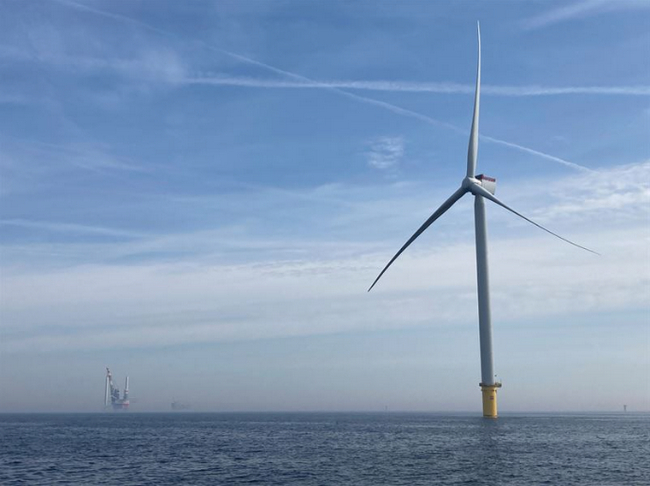 Hollandse Kust Zuid: Vattenfall/Ties van der Horst
Hollandse Kust Zuid: Vattenfall/Ties van der Horst
Hollandse Kust Zuid is the first and largest offshore wind project in the world to be developed without subsidy. Long-term contracts, such as the PPAs concluded with Air Liquide, provide financial security for the project’s investors and provide access to renewable energy for the purchasing party.
Hollandse Kust Zuid is located in the North Sea, about 18-35 kilometres off the Dutch coast between The Hague and Zandvoort. The offshore wind project, consisting of 140 wind turbines with a total capacity of 1,500 megawatts, is scheduled to be fully operational in 2023. Hollandse Kust Zuid is owned by Vattenfall, BASF and Allianz.
Vattenfall is a leading European energy company, which for more than 100 years has electrified industries, supplied energy to people’s homes and modernised our way of living through innovation and cooperation. We now want to make fossil-free living possible within one generation. That's why we are driving the transition to a sustainable energy system through initiatives in renewable production and climate-smart energy solutions for our customers. We employ approximately 19,000 people and have operations mainly in Sweden, Germany, the Netherlands, Denmark, and the UK. Vattenfall is owned by the Swedish state. For more information: group.vattenfall.com
Vattenfall to sell Dutch power plant Magnum to RWE
Vattenfall and RWE have agreed that RWE will take over the Magnum gas-fired power station in the Dutch Eemshaven from Vattenfall as of 30 September 2022. The proceeds from the sale of EUR 500 million will give Vattenfall more resources to invest in the energy transition, for example in fossil-free energy projects such as offshore wind and district heating and cooling.
 Alexander van Ofwegen, Head of Vattenfall’s Dutch Heat operations and CFO Vattenfall in the Netherlands: “In RWE we have found an expert and experienced buyer in the energy field with a clear role for the Magnum plant in the future. This gives employees security and the opportunity to further develop themselves and the power plant. Magnum is a profitable and state-of-the-art gas-fired plant with an important role in the security of supply in the Netherlands.
Alexander van Ofwegen, Head of Vattenfall’s Dutch Heat operations and CFO Vattenfall in the Netherlands: “In RWE we have found an expert and experienced buyer in the energy field with a clear role for the Magnum plant in the future. This gives employees security and the opportunity to further develop themselves and the power plant. Magnum is a profitable and state-of-the-art gas-fired plant with an important role in the security of supply in the Netherlands.
“At the heart of Vattenfall's Heat operations is however the district heating and cooling business where Vattenfall is focusing on decarbonising the heat supply to their customers as part of the gas phase-out in the Netherlands. The proceeds from the transaction give Vattenfall more resources to invest in the energy transition, such as offshore wind and district heating and cooling,” says Alexander van Ofwegen.
The Magnum gas-fired electricity plant consists of three so-called combined cycle gas turbines, which together have a total capacity of 1,410 MW. Magnum is 'hydrogen-ready' and can be made technically suitable to run partly or even completely on hydrogen. Modern, highly flexible gas-fired power plants that can be converted to hydrogen play an important role in the energy transition. They are needed as backup capacity when wind and solar power are not sufficiently available.
The agreement also includes a solar park with a capacity of 5.6 MW. The solar park with around 18,000 solar panels is located on the terrain of the Magnum plant.
According to the agreement with RWE, all Magnum employees will be transferred to the new owner and preparations will be made for a smooth transition of employees and operational matters to the new owner in the coming months. The deal is subject to the advice of the worker's council.
UK Government grants consent for Vattenfall’s Norfolk Vanguard Offshore Wind Farm
The UK Government has awarded planning consent for Vattenfall’s Norfolk Vanguard Offshore Wind Farm. Consent for Norfolk Vanguard follows consent for sister project Norfolk Boreas.
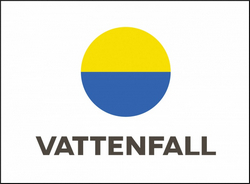 The decision completes consent for the entire Norfolk Offshore Wind Zone. The 3.6 GW Norfolk Zone boosts Government plans for 40GW of offshore wind by 2030. Both projects in Vattenfall’s proposed Norfolk Offshore Wind Zone have now been approved.
The decision completes consent for the entire Norfolk Offshore Wind Zone. The 3.6 GW Norfolk Zone boosts Government plans for 40GW of offshore wind by 2030. Both projects in Vattenfall’s proposed Norfolk Offshore Wind Zone have now been approved.
The zone will produce enough power annually for the equivalent of 3.9million UK homes, with Norfolk Vanguard and Norfolk Boreas providing up to 3.6GW of renewable electricity capacity once operational.
Helene Biström, Head of Business Area Wind at Vattenfall, said:
“Norfolk Vanguard and Norfolk Boreas are industry leading projects, with their designs coordinated to minimise the impact on the environment and communities. We are very pleased to receive consent for Norfolk Vanguard. Although the decision was unfortunately made too late to enable us to bid this project in to the current CfD auction round 4, we will now look into potential opportunities to progress this project, working closely with the supply chain and local communities.”
About the Norfolk Zone
- 3.6 GW installed capacity
- £15 million community benefit fund
- Part of industry plans to create 70,000 jobs by 2026, with 10% of these in the East of England
- First power expected: Mid 2020s
- Homes powered equivalent per annum: 3.9 million
- Amount of CO2 saved: 6 million tonnes per year
- Equivalent cars removed: 3.2 million
- Geographical scale of offshore site area: 1,307 km2
- Distance of the nearest turbine from the shore: 47 km
- Length of cabling onshore: 60 km
- Number of turbines: Between 180 and 312
Vattenfall is a leading European energy company, which for more than 100 years has electrified industries, supplied energy to people’s homes and modernised our way of living through innovation and cooperation.
We now want to make fossil-free living possible within one generation. That's why we are driving the transition to a sustainable energy system through initiatives in renewable production and climate smart energy solutions for our customers.
We employ approximately 20,000 people and have operations mainly in Sweden, Germany, the Netherlands, Denmark and the UK.
Vattenfall is owned by the Swedish state.
For more information: www.vattenfall.com
Vattenfall joins First Movers Coalition and commits to purchase low carbon products and technologies
First Movers Coalition was launched at COP26 in Glasgow by the U.S. State Department and the World Economic Forum. Vattenfall has joined as a founding member and is thereby committing to increasing the share of emerging technologies critical to the net-zero transition in its procurements.
“If we across industries can create a strong demand for new technologies that need to be developed in order to significantly reduce CO2-emissions in some of the most difficult sectors, that can speed up commercialisation of these products and thereby be essential to reach the 1.5 degree target. This is fully in line with Vattenfall’s strategy to make fossil free living possible within one generation and I am very optimistic about the future of this initiative,” says Anna Borg, President and CEO, Vattenfall.
U.S. Special Presidential Envoy for the Climate, John Kerry, has together with the World Economic Forum initiated the First Movers Coalition. It focuses on eight sectors that today comprise more than 30% of global CO2-emissions and where new technologies are needed to reduce emissions. In a first phase, commitments within four sectors have been presented and the joining companies commits to purchase shares by 2030 in one or more of these sectors.
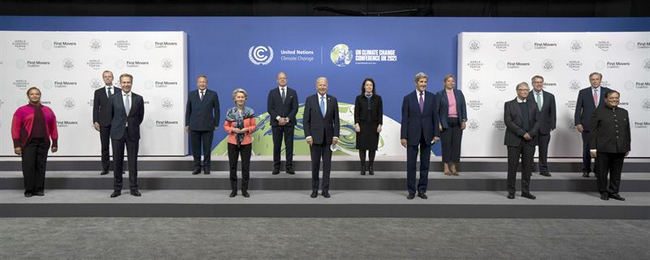
Vattenfall has committed to:
- Put requirements towards its suppliers to use “breakthrough steel” that will enable the company to have at least 10% of the steel volumes procured annually by 2030 being breakthrough steel, like for example the Hybrit fossil free steel.
- Put requirements on its trucking service providers to meet the requirements of at least 30% of their heavy-duty and 100% of their medium-duty truck purchases being zero-emission trucks by 2030.
- Put requirements on airlines and air transport providers to replace at least 5% of conventional jet fuel demand with SAF (Sustainable Airline Fuels) that reduces life-cycle GHG emissions by 85% or more when compared with conventional jet fuel, and/or use zero-carbon emitting propulsion technologies by 2030.
Vattenfall has already committed to reduce the CO2 emissions from our business travel by air by 50% 2019-2022 and to make Vattenfall’s car fleet fossil free primarily via electrification.
“At the same time as we commit on increasing the share of low-carbon products and services that we buy, we are actively working in partnerships to develop these technologies, like for example with SSAB and LKAB in the Hybrit initiative for fossil free steel, and as we announced yesterday with SAS, Shell and LanzaTech to investigate large scale production of sustainable air fuel. Altogether we see big business opportunities in driving the transition towards a fossil free future,” says Anna Borg.
Facts:
Founding members are:
A.P. Møller –Mærsk
Aker ASA
Agility
Airbus
Amazon
Apple
Bain & Company
Bank of America
Boston Consulting Group
Boeing
Cemex
Dalmia Cement (Bharat) Limited
Delta Air Lines
Deutsche Post DHL Group
ENGIE
Fortescue Metals Group
Holcim
Invenergy
Johnson Controls
Mahindra Group
Nokia
Ørsted
ReNew Power
Scania
SSAB Swedish Steel
Trafigura Group
Trane Technologies
United Airlines
Vattenfall
Volvo Group
Yara International
Western Digital
ZF Friedrichshafen AG
The remaining sectoral commitments will launch in early 2022.
Read more at the FMC website.
SAS, Vattenfall, Shell and LanzaTech to explore synthetic sustainable aviation fuel production
Vattenfall, SAS, Shell and LanzaTech will together investigate the production of the world’s first synthetic sustainable aviation fuel (SAF) using the LanzaJetTM “Alcohol to Jet” technology on a large scale in Sweden. Instead of using virgin fossil material in the production process, the synthetic SAF will be produced from fossil free electricity and recycled carbon dioxide from district heating.
The goal is that a new production facility will produce up to 50,000 tonnes of synthetic SAF annually, provided that an investment decision is made at a later stage. The synthetic SAF, also known as electrofuel, will be produced from fossil free electricity and recovered carbon dioxide using the LanzaJet “Alcohol to Jet” technology, developed by LanzaTech and the U.S Department of Energy’s Pacific Northwest National Laboratory (PNNL). When full production is up and running it could provide SAS with up to 25 per cent of its global demand for sustainable aviation fuel in the 2030s.
A joint study has shown promising conditions for the project, and all partner companies now agree to carry out in-depth analyses. The ambition is to commission the new production facility sometime between 2026 and 2027 near Forsmark on Sweden's east coast.
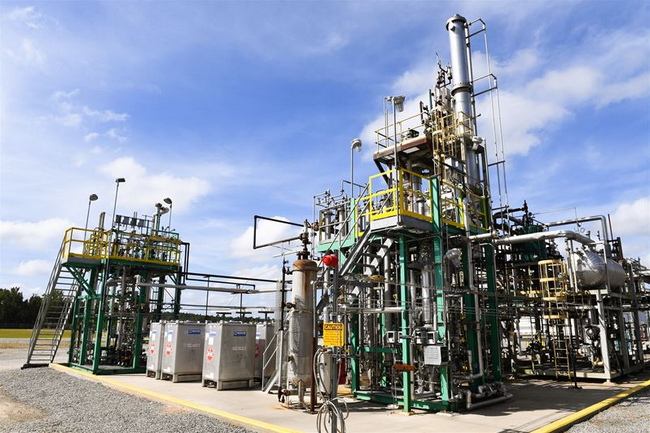
"SAS and Sustainability go hand in hand. That’s why we are incredibly proud to be part of this unique project where ambitious sustainability goals and agendas come together. Our joint commitment in finding ways to enable large-scale production of a more sustainable aviation fuel is a fantastic opportunity to accelerate the commercialization of SAF, and thus SAS’s transition towards industry-leading zero-emission flights,” says Anko van der Werff, President and CEO, SAS.
"This initiative shows the potential of cross industry partnerships to drive the decarbonization of a hard-to-abate sector. To innovate faster in order to bridge to a fossil free living within one generation. This is a really good opportunity and together we will explore further how to produce low emission electrofuel for aviation,” says Anna Borg, President and CEO, Vattenfall.
"Sustainable aviation fuel offers the greatest potential to reduce emissions from aviation. It is only by working together today across the aviation ecosystem to drive the technologies and infrastructure needed to produce SAF at scale that the aviation sector can achieve net zero by 2050. This is why I am excited for this collaboration to explore one more pathway for SAF production,” says Anna Mascolo, President, Shell Aviation.
“The aviation sector faces incredible challenges getting the volumes of SAF needed for sustainable flight. This project is the start of delivering on these volumes and by reusing carbon dioxide and fossil free power we have an opportunity for unprecedented scale. We need to rethink carbon and together with fossil free power, harness it to create a new climate safe future for all,” says Jennifer Holmgren, CEO LanzaTech.
The aim of the project is to get the production of electrofuel started in Sweden. The companies have signed a Memorandum of Understanding and agreed that Vattenfall will investigate fossil free electricity supply, hydrogen production and carbon dioxide recovery. Shell will investigate fuel production, logistics and be the electrofuel buyer. LanzaTech will provide its gas fermentation expertise to make ethanol from the input gas streams and parties will license the LanzaJet “Alcohol to Jet” technology to convert the ethanol to electrofuel. SAS will participate as a potential buyer of the electrofuel.
Facts:
- Electrofuel is one type of SAF (Sustainable Aviation Fuel).
- In contrast to fossil feedstock, fossil free electricity, recycled carbon dioxide and water will be the only inputs to the process of making electrofuel. Electricity will mainly be used to make hydrogen via electrolysis. Carbon dioxide plus hydrogen can be converted by LanzaTech’s process into ethanol which is then converted via the LanzaJet Alcohol to Jet process to the aviation electrofuel.
- Rather than be released, the carbon dioxide from a district heating facility will be captured and used for electrofuel production. When electrofuel is combusted by aircraft engines, the captured carbon dioxide is released into the atmosphere after being utilized a second time. The raw materials planned to be used are fossil free electricity from the Swedish electricity grid and carbon dioxide collected from Vattenfall’s combined heat and power plant in Uppsala, where approximately 200,000 tonnes of carbon dioxide can be recovered per year.
- Today’s aircraft are certified to fly with a maximum of 50% SAF depending on production pathway and the remainder with traditional aviation fuel.
- Our annual planned SAF production of 50,000 ton would strongly contribute to the Swedish national targets of a fossil free domestic air travel and corresponds to about 30% of the needed Jet fuel to reach that target.
About Vattenfall
Vattenfall is a leading European energy company, which for more than 100 years has electrified industries, supplied energy to people’s homes and modernised our way of living through innovation and cooperation. We now want to make fossil-free living possible within one generation. That's why we are driving the transition to a sustainable energy system through initiatives in renewable production and climate smart energy solutions for our customers. We employ approximately 20,000 people and have operations mainly in Sweden, Germany, the Netherlands, Denmark and the UK. Vattenfall is owned by the Swedish state. For more information: corporate.vattenfall.se
About SAS
SAS, Scandinavia’s leading airline, with main hubs in Copenhagen, Oslo and Stockholm, flies to destinations in Europe, the USA and Asia. Spurred by a Scandinavian heritage and sustainable values, SAS aims to be the global leader in sustainable aviation. To achieve net zero carbon emissions on its domestic markets in 2030 and on a global level before 2050, SAS will, over the coming years, source a growing share of SAF, both through its self-supply at the main hubs but also through into-plane suppliers at the locations from which SAS operates. Further information is available at www.sasgroup.net
About Shell
Shell is an international energy company with operations divided across Upstream, Integrated Gas and Renewable and Energy Solutions and Downstream. We are partnering with customers, businesses, and others to address emissions, including in sectors that are difficult to decarbonise such as aviation, shipping, road freight and industry. Shell aims to produce around 2 million tonnes of SAF by 2025, and by 2030, it aims to have at least 10% of global aviation fuel sales as SAF.
About LanzaTech
LanzaTech harnesses the power of biology and big data to create climate-safe materials and fuels. LanzaTech has created a platform that converts waste carbon into new everyday products that would otherwise come from virgin fossil resources. LanzaTech’s first commercial scale gas fermentation plant has produced over 27M gallons of ethanol which is the equivalent of keeping over 130,000 metric tons of CO2 from the atmosphere. Additional plants are under construction globally. Further information is available at www.lanzatech.com.
Vattenfall commits to landfill ban and to recycle all wind turbine blades by 2030
Vattenfall has set ambitious targets in how to deal with wind turbine blades at end of life. An immediate commitment to a landfill ban on decommissioned wind turbine blades has been made. The next decade there will be an intense work increasing the recycling rate of wind blade components.
Vattenfall’s ambition is to enable a fossil-free living within one generation and one important element to deliver on this is a significant growth in wind energy. To ensure this is done in a sustainable way, Vattenfall has a high focus on reducing environmental impacts and to handle all resources responsibly. Therefore, Vattenfall has set several targets for how to deal with wind turbine blades at end of life:
- An immediate decision on landfill ban on decommissioned wind turbine blades from owned windfarms and committing to re-use, recycle or recover 100 percent of decommissioned blades
- A 50 percent recycling rate of wind turbine blades by 2025
- A 100 percent recycling rate of wind turbine blades by 2030
“It is no longer acceptable for composite waste from the wind industry to be placed in landfills, even though specific country legislation allows for this. Achieving 50 percent recycling by 2025 and 100 percent by 2030 is a big challenge. Solutions to tackle this challenge do not exist in large scale today, so significant efforts are needed to reach this long-term goal. Therefore we will engage in and provide blades to research initiatives that will foster further technology innovation and testing of more advanced recycling technologies”, comments Eva Philipp, Head of Environment and Sustainability Busines Area Wind.
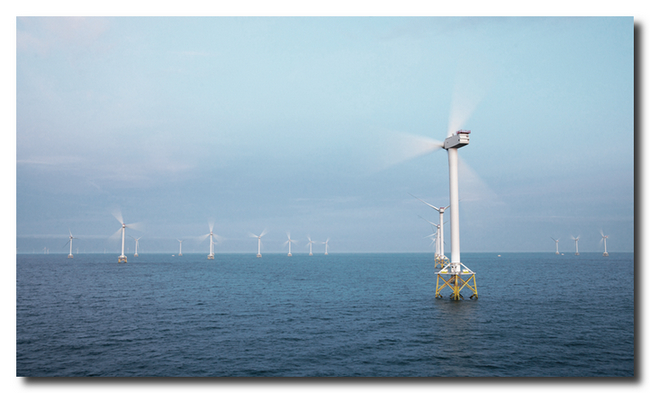
To achieve the ambitious target, Vattenfall, among others, supports research on material recycling of composite waste and promotes the use of recycled composite material in new products. Furthermore, there will be a long-term approach focusing on all aspects of circular economy, such as supporting the recyclability of wind blades by design, and thereby increasing the value of the recycled material at end of life.
“To reach 100 percent recycling is a joint effort and all stakeholders need to collaborate. In this Vattenfall wants to significantly contribute. As the wind industry continues to grow to provide fossil-free energy across the globe, Vattenfall is committed to promoting a circular economy which reduces environmental impacts throughout the product lifecycle”, comments Helene Biström, Head of Business Area Wind
To be able to achieve a complete recycling of wind turbine blades depends on factors like technical development, support of policies and governmental incentives. And in order to push the business towards a sustainable end of life solution for wind turbine blades, Vattenfall will continue to increase its engagements in cross industry discussions on national and as well as EU level.
Vattenfall takes on direct marketing for 250 MW offshore wind farm Arcadis Ost 1 in the Baltic Sea
Vattenfall and Parkwind have agreed to cooperate in direct marketing1 in the offshore wind power sector where Vattenfall will be marketing the Arcadis Ost 1 offshore windfarm in the Baltic Sea.
The 250 MW offshore wind farm will be built 19 kilometers northeast of the island of Rügen in the Baltic Sea, in the coastal waters of Mecklenburg-West Pomerania. The construction phase is planned to begin in the second quarter of 2022. In total 27 wind turbines from the manufacturer MHI Vestas will come into operation. Parkwind expects that Arcadis Ost 1 will be able to feed the first wind power from the Baltic Sea into the German transmission grid from the end of 2022.
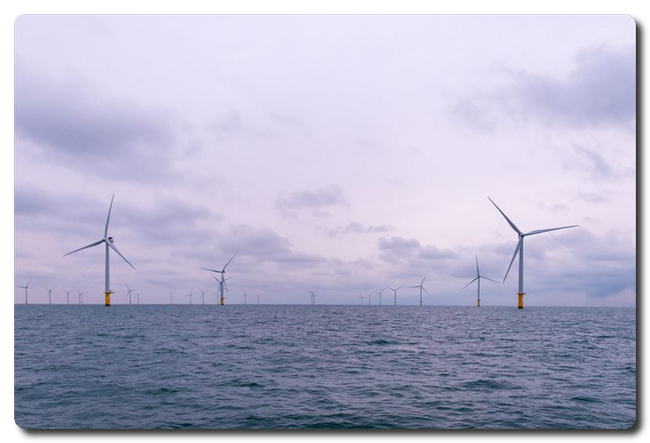
"In line with Vattenfall’s strategy to enable a fossil free living within one generation we are always seeking to further strengthen our expertise in marketing of renewable assets, especially in the field of offshore wind which is one of our focus areas in renewables. Therefore, Arcadis Ost 1 is a perfect match to further strengthen and diversify our direct marketing portfolio in Germany”, says Erik Suichies, Head of Customers, Vattenfall European wholesale business.
“This agreement with Vattenfall adds yet another strong partner to the Arcadis Ost 1 project, this time on the power offtake side. Vattenfall’s direct marketing experience adds strength to our green energy mission and allows us to have the optimal approach in the German power market.”, says Eric Antoons, Managing Director of Parkwind Ost.
1About direct marketing
Direct marketing is the PPA (Power Purchase Agreement) variant specific for Germany. The term refers to the fact that operators of newly installed renewable generation in Germany are obliged to sell the electricity they produce directly on the market. Most operators choose not to sell the electricity on their own. Instead, they opt to hand over this task to a specialist company to act as a “direct marketer”.
About Parkwind
Parkwind is an independent green energy company that develops, finances and operates offshore wind farms. With more than a decade of experience and 771 MW under operational management in the Belgian North Sea, Parkwind is currently expanding internationally. With active projects at various stages of development, such as Arcadis Ost 1, Parkwind is set to add another 1 GW of capacity. Learn more here
